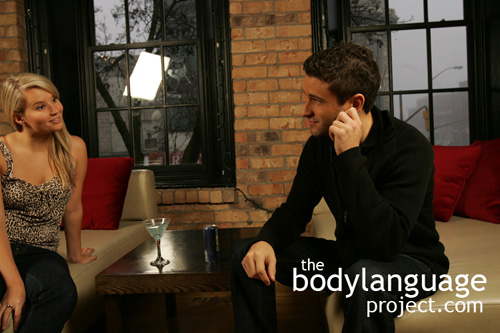
When ear grabbing is done while listening to others speak it is due to disbelief, as in “I can’t believe what I’m hearing.”
The ear grab refers to a subconscious desire to “hear no evil” and is done by reaching up and pulling the ear in response to, either hearing something disagreeable, or saying something disagreeable. Children make no bones about blocking their ears when being teased or scolded by parents, but as we grow older, we drop the cue short because it is seen as juvenile, so instead we pull our ear, or earlobe. The gesture is an attempt at preventing the sounds from reaching a deeper part of the brain. It also sometimes represents anxiety and nervousness, and is classified as a defensive posture. We may see this gesture arise just as a performer is about to take the stage in front of thousands of people.
The ear grab can be use not only at the conclusion of the lies of others, but also at the conclusion of our own lies as well, and this is why it is referred to as a gesture that shows a desire to “hear no evil.” The gesture used at the conclusion of our own lies serves to reduce what is called “cognitive dissonance” which is the uncomfortable feeling that comes from holding two contradictory ideas simultaneously. For example, a used car salesman might talk about the quality of a certain car, than pull on his ear lobe, or more subtly, he might be found rubbing the edge of the ear, indicating that what he has just said is untrue. In this case, cognitive dissonance stems from the telling of a lie which is inherently bad, while a person feels that they are inherently good (it might seem odd, but everyone feels they are inherently good, even murders justify their actions). So lie tellers bridge their bad thoughts due to cognitive dissonance with the ear grab, until they have time to justify the lie to themselves. Therefore, it is the pain of the dissonance that causes the ear grab in liars.
When ear grabbing is done while listening to others speak it is due to disbelief as in “I can’t believe what I’m hearing” and the same “hearing no evil” is at play. In this case though, it is the receiver, not the sender, who wishes not to hear the lie. By touching or scratching the ears we hope that we can satisfy the nerve endings and end the discomfort. In other words, when we hear bad things, we go to our ears to try to turn the volume down. Other times, touching the ear means nothing at all and is simply the result of nervousness or boredom.
The ears often flush red when people are nervous which can be the case when they are worried about getting caught in a lie. This is why the ear grab and flushing, can be great poker tells when people are stressed about bluffing. The ear grab is a way that our bodies respond to the extra stimulation they get when agitated and we go to them to scratch or pull on them as stress relievers. Think of the ear grab like rubbing sore muscles or massaging a stiff back, except in this case the damage done is internal and it’s due to something that has been heard, which “hurts” the ears. Anytime someone shows the desire to touch their ear means that they are thinking about hearing, and it will be up to you to tie them to context and decide what it is they are really saying.


